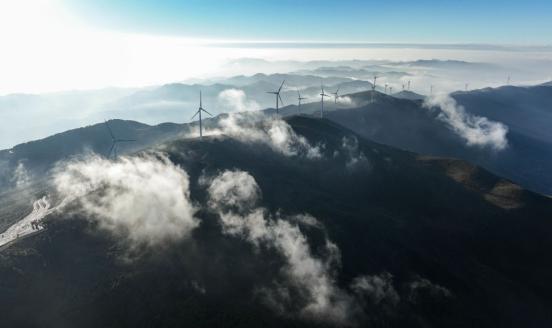A new climate strategy for the EU
At a pivotal point in time, three major EU sides come together to discuss the future climate strategy.

Speakers
Georg Zachmann
Senior fellow
Andrei Marcu
Founder & Executive Director, European Roundtable on Climate Change and Sustainable Transition (ERCST),
Raffaele Mauro Petriccione
Director General, European Commission, DG CLIMA,
Kathleen Van Brempt
Member, Group of the Progressive Alliance of Socialists and Democrats, European Parliament,
Silke Karcher
Head of Division, EU Climate and Energy Policy, European Climate Initiative (EUKI), Carbon Markets, Federal Ministry for the Environment, Nature Conservation and Nuclear Safety, Germany,
video & audio recordings
summary
This event featured a panel discussion on the recent European Commission communication for a new, long-term climate strategy for the EU entitled “A Clean Planet for All: A European Strategic Long-Term Vision for a Prosperous, Modern, Competitive and Climate Neutral Economy.”
The communication, issued in November 2018, was presented by Raffaele Mauro Petriccione, Director General in the European Commission’s Department for Climate Action (DG CLIMA). Petriccione highlights how past proposals, such as the 2011 Roadmap, have relied heavily on strategies that keep existing systems in place, such as carbon capture storage. This new communication seeks to change this by proposing more radical changes to the economic system through a 2050 carbon neutrality target. The communication reveals that this target is both feasible and can be achieved in way that keeps Europe globally competitive. However, in order for these goals to be realized, the EU must find a way to redirect private investment towards carbon neutrality and make these investments attractive.
Despite the actions that the EU has taken towards fulfilling its obligations in the Paris Agreement, more must be done in order to permanently alter market structures. The 2050 target would provide a concrete and legitimate incentive and motivator towards moving industries and investors towards climate neutrality.
Silke Karcher highlighted a recent study by the German EPA that revealed that this target was attainable given existing technologies. However, the window for action is closing and Europe must deploy its resources quickly and effectively in order to reach the 2050 target.
Georg Zachmann commented that this communication provides neither policies nor pathways towards achieving the 2050 target. Before discussing these action steps, the EU must have a pan-European debate to build consensus and support endorsing the Commission’s objective. This debate should also include a discussion of economic trade-offs informed by data and analysis.
The panelists also discussed the broader international implications of the 2050 target. Namely, if Europe were able to achieve carbon neutrality while remaining prosperous and globally competitive, would other countries follow its lead? Kathleen Van Brempt commented on an additional opportunity to use trade agreements to ensure that other countries are making actions towards fulfilling their obligations under the Paris Agreement.
Although Europe has already made significant strides towards addressing climate change, the panelists agreed that these steps were not enough. Carbon neutrality by 2050 is an attainable goal but only if actions are taken soon. However in order for these goals to be realized, the first step will be to build public support and consensus that endorses the importance of a carbon neutral future.
Notes by Rachel Campbell-Baier








